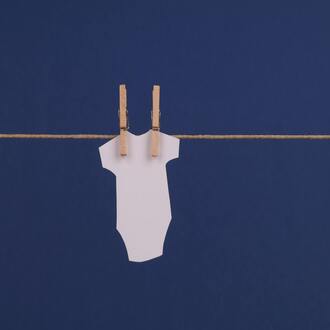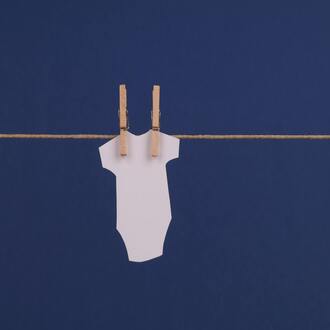Transcription Water as a nutrient
Although often excluded from nutrient lists, no other element is more involved than water in the optimal functioning of all organs and systems. Keep in mind that all chemical reactions in the body take place in an aqueous medium and water accounts for 65% of the body's weight.
Sixty-six percent of the total body water is inside the cells, the rest - approximately 33% - is found as part of the blood plasma and the spaces between cells.
Functions of water
- It is the transporter of nutrients and substances necessary for the life of the cells, since nutrients are transported through the blood, whose main component is water.
- It is the vehicle used to eliminate the waste products of cell metabolism. These wastes are eliminated primarily through the kidneys and to a lesser extent through the skin. The production of urine and sweat depends on water.
- It lubricates and provides structural support to tissues and joints, including the spine. Good hydration reduces joint stiffness and pain and helps to dissipate the concentration of inflammatory substances around the joints.
- It keeps the temperature of all organs and systems of the body stable. Excess body heat is dissipated through the evaporation of sweat, which requires the availability of body water.
- It contributes with the supply of nutrients that in reduced quantities are dissolved in water. For example: magnesium, chlorine, sodium.
- Facilitates digestion: The digestion of nutrients requires water from the beginning with saliva; until the end to avoid constipation.
- Helps the absorption of nutrients through the intestinal wall. Poor hydration reduces nutrient absorption.
- Helps distribute leukocytes and other immune system cells, making organs and systems more resistant to disease.
Maintaining water balance
The maintenance of water balance to avoid dehydration implies that the volume of water lost is equal to the amount of water that is replenished. It has been suggested that a reduction of 7% of body water below the required volume could lead to hallucinations, dizziness, etc., and that restrictions above 10% can lead to death.
Origin of water losses in the body
- Water eliminated through urine and feces.
- Evaporative losses through the skin and exhaled air, which can be increased as a result of heat caused by the following factors.
- Increase in ambient temperature.
- Intense physical work or exercise.
- In health situations such as infections, fever, digestive problems or renal alterations.
Main sources of water
- Consumption of liquids, which may be water or other beverages containing water.
- Of the water present in solid foods, most contain considerable quantities, such as fruits, vegetables and greens.
- Small amounts of water produced in metabolic processes.
How much water should we drink per day?
It is difficult to establish general recommendations for water consumption, since requirements are closely related to age, sex, body size, diet, physical activity, ambient temperature and special physiological situations such as pregnancy or breastfeeding.
It is generally recommended that women consume approximately 2.7 liters of fluids per day and men 3.7 liters of fluids per day. These recommendations include water from other beverages and food. The advice to drink 8 glasses of water a day is also accepted.
When should you drink more water?
- When you suffer from vomiting or diarrhea.
- When you do physical activities that make you sweat. It is important to drink water before, during and after intense physical work, training or sports competitions.
- When the weather is hot or humid.
- If you suffer from infections, fever, kidney disorders or diuretic intake.
- During pregnancy and, especially, during breastfeeding, it is important to increase fluid intake by approximately 750 milliliters per day, more than what is normally consumed.
Recommendations for good hydration
- Start the day properly hydrated, a glass of water would be best, but remember that fruit nectars and dairy products contain plenty of water.
- Do not wait until you are thirsty to drink water. During the day, water helps you feel fresher and more energetic.
- Do not associate the consumption of liquids to certain times of the day such as snacks or meals, hydration should be frequent.
- During the winter we should maintain regular hydration habits.
- During the development of physical activities we should increase fluid intake to replenish losses.
- Always carry with you on trips and excursions containers that contain liquids in order to hydrate as often as required.
What role do juices and nectars play in hydration?
They provide large amounts of water, so they can contribute to the maintenance of good hydration, especially at times when we do not want or do not have water to drink.
It is recommended to consume them in moderation, without added sugars or sweeteners; without forgetting that the benefits they provide can be obtained with higher quality by consuming water, fruits and vegetables.
Is it advisable to achieve water balance by drinking industrial soft drinks?
The ingestion of industrial soft drinks is not recommended due to their harmful effects. The following are the most important ones:
- Due to their caffeine content, simple sugars and other chemical substances, they increase the appetite for sweets, creating addiction.
- They increase the risk of obesity, cardiovascular diseases and type 2 diabetes.
- They do not provide nutrients, only empty calories.
- They favor the loss of tooth enamel and the appearance of cavities due to the large amount of sugar and acids they contain.
- They can cause sleep disturbances if they contain caffeine.
- In addition, their regular and prolonged consumption can increase the risk of suffering from gastritis and osteoporosis.
water




